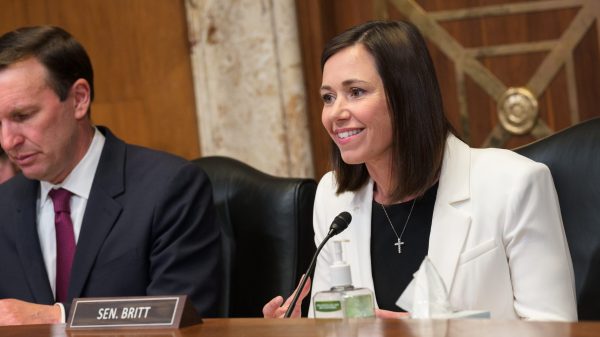By Brandon Moseley
Alabama Political Reporter
Thursday, Senator Jeff Sessions (R) announced on the floor of the U.S. Senate that he was proposing an amendment to the farm bill which would both decrease the $900 billion that taxpayers spend on the federal welfare programs and re-establish the moral principle that federal welfare is temporary assistance and not permanent support.
Sen. Sessions said “I have filed a modest package of food stamp reforms to the farm bill that will achieve several important goals: Save taxpayer dollars; reduce the deficit; achieve greater accountability in how the program is administered; confront widespread waste; direct food stamps to those truly in need; and help more Americans achieve financial independence.”
Sen. Sessions continued, “What might surprise many people is that the overwhelming majority of funds in the farm bill are not spent on anything to do with farms or agriculture. For instance, crop insurance is just 8 percent of the farm bill. Horticulture is less than 1 percent. But a full 80 percent of the farm bill goes to the federal food stamp program.” “Overall, this legislation will spend $82 billion on food stamps next year, and an estimated $770 billion over the next ten years. To put these figures in perspective, we will spend $40 billion federal dollars next year on roads and bridges.”
Sen. Sessions proposed restoring the asset test for food stamp eligibility. That would save the government $12 billion over the next ten years. Sessions also proposed ending the LIHEAP loophole. The Low Income Home Energy Assistance Program (LIHEAP) pays the heating bills for poor people. People that qualify then also qualify for food stamps. 15 states mail out tiny checks of as little as a dollar so that they can get more food stamp money. Ending that abuse of the program would save the taxpayers $15 billion over ten years. Sessions also proposed ending SNAP bonuses to states who sign up a large number of people to the food stamp program and requiring that food stamp recipients go through an e-verify like system to make sure that people getting the benefits are actually in the country lawfully.
Sen. Sessions said, “Ultimately, beyond these first steps, the best way to achieve integrity in the food stamp program is to block grant it to the states. This will provide states with a strong incentive to make sure that each dollar is being properly spent.”
Sen. Sessions concluded, “It is time to re-engage the national discussion over how the receipt of welfare benefits can become damaging, not merely to the Treasury but also to the recipient… We need to re-establish the moral principle that federal welfare should be seen as temporary assistance, not permanent support. The goal should be to help people become independent and self-sufficient. Such reforms, made sincerely and with concern for those in need, will improve America’s social, fiscal, and economic health.”
The number of Americans receiving food stamps has grown from 1 out of 50 when the program began to 1 out of 7. The number has doubled since Barack Obama became President.
Senator Jefferson “Jeff” Beauregard Sessions III is the ranking member of the Senate Budget Committee.






















































